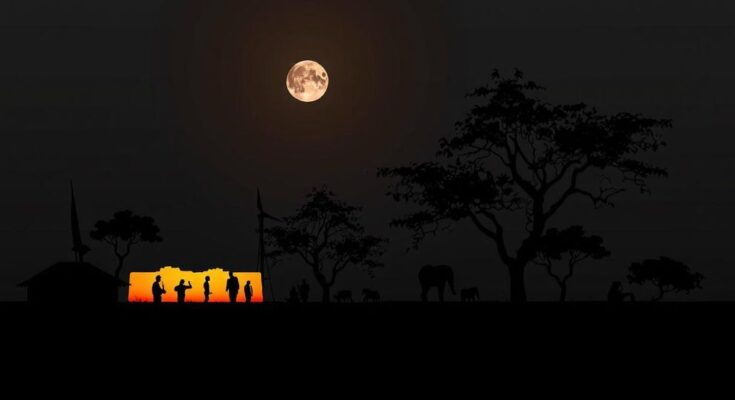South Sudan’s Foreign Affairs Minister Ramadhan Abdalla Mohammed Goc reported on the progress made toward peace despite challenges related to resource scarcity. He called for international support for the peace process, highlighted the humanitarian crisis fueled by the conflict in Sudan, and emphasized the need for action against climate change. He also criticized existing Security Council sanctions as impediments to stability and called for reform in the Council to better reflect contemporary global dynamics.
In a recent address, Ramadhan Abdalla Mohammed Goc, the Minister for Foreign Affairs and International Cooperation in South Sudan’s Revitalized Transitional Government of National Unity, articulated the ongoing challenges facing the nation amidst its efforts toward achieving comprehensive peace and political stability. The Minister underscored that while there has been significant progress since the signing of the Revitalized Agreement on the Resolution of the Conflict, the scarcity of resources remains a substantial barrier to fully realizing its provisions. To this end, all signatories to the peace accord have displayed a commitment to further solidifying the advancements made, exemplified by a recent agreement to extend general elections by an additional 24 months. This extension aims to provide essential security sector mechanisms and elections-related institutions with the necessary time to execute their mandates effectively. The Minister appealed to the international community for robust financial and technical support, stating, “this new road map for a peaceful transition in South Sudan is met by availing the required financial and technical support for the process.” Moreover, Minister Ramadhan highlighted the humanitarian crisis stemming from the conflict in Sudan, which has led to over 800,000 refugees seeking safety in South Sudan. He urged global actors to amplify their support for Sudan and to engage in conflict resolution efforts. Addressing the acute impacts of climate change on Sudan and across Africa, he called for enhanced global leadership from developed nations, urging them to increase their financial contributions to necessary global mitigation and adaptation initiatives. He outlined key governmental priorities, including the inclusion of women and youth, universal access to healthcare, and the transformation of education systems. The Minister also condemned the existing Security Council sanctions and arms embargo imposed on South Sudan, characterizing them as significant obstacles to achieving sustainable peace and security within the nation. “As a country, we have experienced relative peace and stability for the last six years, and the continued imposition of these punitive measures is not reflective of the progress we have made so far,” he remarked. He advocated for reform to the Security Council to better align with contemporary global dynamics and to appropriately address African concerns.
The context of this statement revolves around South Sudan’s ongoing journey toward peace following years of civil conflict. Since its independence in 2011, South Sudan has experienced political turmoil and violence. The Revitalized Agreement, signed in 2018, aimed to establish a framework for a sustainable peace process that addresses the underlying causes of conflict. Despite evident commitments from various parties to uphold the agreement, resource scarcity continues to impede effective implementation. Additionally, the humanitarian ramifications of regional conflicts, particularly the situation in Sudan, further complicate South Sudan’s stabilization efforts.
In conclusion, Minister Ramadhan Abdalla Mohammed Goc’s address highlights South Sudan’s persistent challenges and commitment to navigating the path toward lasting peace and political stability. The call for international support, reform within the Security Council, and robust action concerning climate change and humanitarian crises exemplifies the interconnected nature of these issues. Addressing these concerns is crucial for fostering a conducive environment for sustainable development and peace in South Sudan and the broader region.
Original Source: gadebate.un.org




